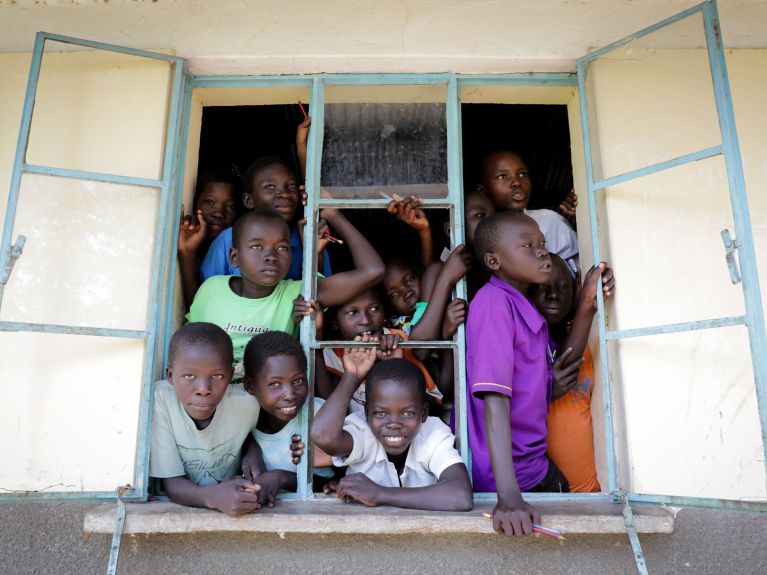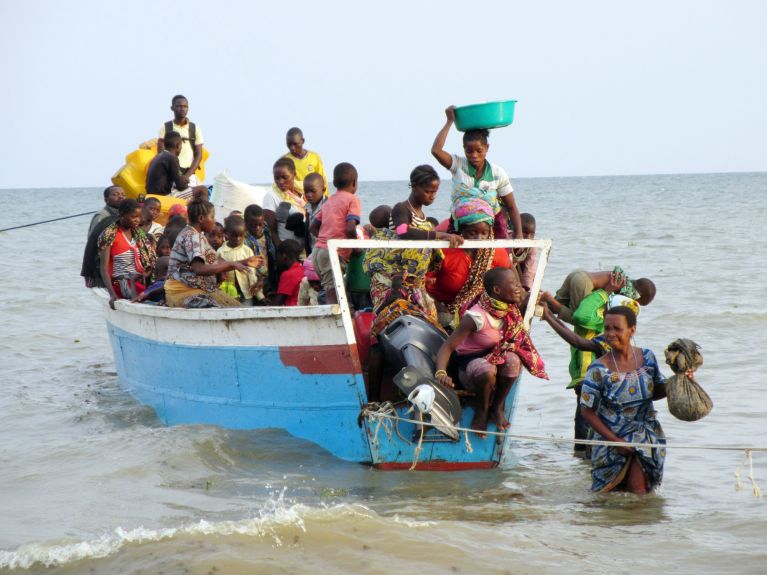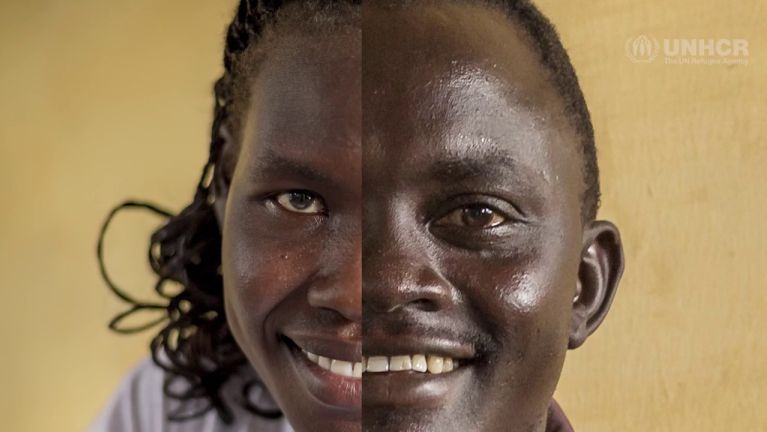How to prevent refugee flight
Creating prospects for staying: how the German Federal Foreign Office is working to ensure that fewer people leave their homelands.

They flee from wars, conflicts and human rights violations, but also from the consequences of climate change such as droughts and floods: almost 80 million people around the world are on the run. Most seek protection in their home regions or neighbouring countries. But even there they often live in difficult conditions. The German Federal Foreign Office is therefore doing everything it can to combat the causes of refugee flight in the countries of origin.
Dieses YouTube-Video kann in einem neuen Tab abgespielt werden
YouTube öffnenThird party content
We use YouTube to embed content that may collect data about your activity. Please review the details and accept the service to see this content.
Open consent formCrisis prevention and stabilization
Germany participates in peace missions of the United Nations – for example, in Mali and the Congo – which help defuse longstanding violent conflicts.
Germany is also active in NATO missions in Afghanistan, Kosovo and the Mediterranean. Within the framework of the EU, Germany is engaged in peacekeeping missions in the Horn of Africa and in the Mediterranean off Libya.
The Federal Foreign Office also finances stabilization projects in many countries. In conflict and post-conflict situations, it creates prospects for civilian populations to stay in or return to their homelands by restoring a safe environment, basic medical care and functioning infrastructure.
No false hopes
In addition, the Federal Foreign Office has been countering targeted misinformation from criminal traffickers and rumours about refugee flight to Europe since 2017 and correcting them on a specially set up web site: rumoursaboutgermany.info.
It and its diplomatic missions abroad further provide information in seven languages about the dangers of flight and irregular migration, and about the current legal framework for asylum applications, protection status and the right to stay for refugees and migrants in Germany.
Dieses YouTube-Video kann in einem neuen Tab abgespielt werden
YouTube öffnenThird party content
We use YouTube to embed content that may collect data about your activity. Please review the details and accept the service to see this content.
Open consent formCreating prospects for the future
As the second largest donor to the United Nations Refugee Agency (UNHCR), Germany makes an important contribution to ensuring that refugees can live in safety and dignity worldwide. The UNHCR provides food, medical care and accommodation for refugees in host countries and works to find a lasting solution to conflicts. The Albert Einstein German Academic Refugee Initiative (DAFI) specifically supports the access of young refugees to higher education. The Federal Foreign Office finances ninety per cent of the DAFI budget.

You would like to receive regular information about Germany? Subscribe here:




